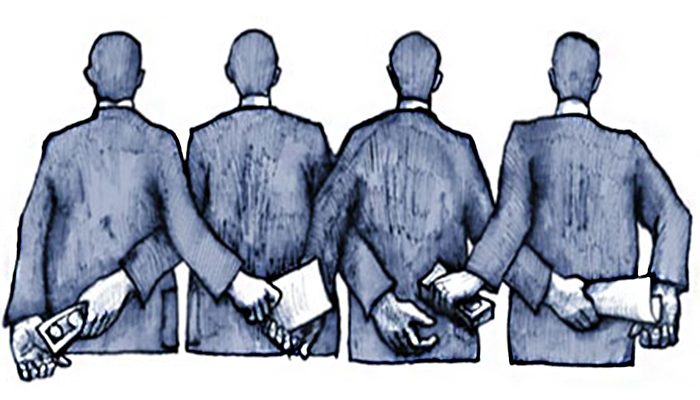In 2016, Ukrainian society made some key steps in its fight against corruption. E-government, and particularly e-procurement, has advanced significantly in Ukraine since 2014. The introduction of e-declarations for public officials’ income, property and spending meant that Ukraine was placed fourth in a list of the most open governments in Eastern Europe. However, despite this progress, corruption remains a major problem. According to Transparency International, in 2015 the country was ranked 130th out of 168 in public perception of corruption, at the same level as Iran, Cameroon and Nepal.
The poor and vulnerable suffer most from administrative corruption, as they rely heavily on public services. Ukraine is still one of the poorest countries in Europe. The minimal monthly salary
is around €58, compared to €215 in Bulgaria and €276 in Romania. According to research on corruption conducted by the UNITER Pact in 2015, a third of the population thought corruption had become more prevalent since the Euromaidan revolution of Euromaidan. The research also showed a decrease in public trust in all government bodies. This has had a very concrete effect on the daily life of Ukrainians who would like to start small businesses, take children to kindergarten or have proper medical examinations without paying bribes.
First of all, combatting corruption requires targeted measures, and robust institutions that can take them. Ukraine has made impressive efforts through legislation and with the establishment of three new anti-corruption agencies. A strong anti-corruption response also requires an intersectoral approach and needs to be made throughout all government departments. Establishing anti-corruption focal points in every ministry is the first major step. These focal points, however, require the knowledge and skills they need to deliver results. Initiatives such as UNDP-led training with the Ministry of Health on conflict of interest help to move the process forward.
Secondly, the country needs open and transparent procurement systems that identify and mitigate corruption risks. ProZorro, the state e-procurement system is now being used nationwide for all public procurement. UNDP is also working with the Ministry of Health to establish a procurement system that will ensure effective and transparent delivery of medicines, while putting electronic stock management in place to provide real-time data and information on medicine supplies.
Thirdly, access to public information is essential for tracking and preventing corruption. Legislation on open data is critical, particularly for the construction industry, the utilization of public funds, and the registration of legal entities, land use and city plans. UNDP has been proud to support open data legislation in Ukraine that obliges government agencies to publish and update information regularly on the open data portal and their own websites. We have facilitated assessments of the open data legislation commissioning the Open Data Readiness Assessment
and supporting the Open Parliament Action Plan, which enables legislators and civil society parliamentary monitors to improve the Parliament’s procedures and everyday practices. With the launch of the e-asset declaration system, over 130,000 politicians and senior civil servants openly showed their income, and citizens now have public access to officials’ spending, also in open data format.
Finally, tackling corruption requires a cultural change from all sectors of society: this needs to be supported by strong civic engagement. For this, we need open, vibrant and safe civic spaces within which civil society actors can interact with the Government and other service providers. Data should also be used a tool to demand key services that Ukrainians deserve: faster, better and citizen-centric services. Notably, building knowledge and skills to promote a cultural shift on corruption from both within Ukraine and abroad is essential. UNDP has organized a series of awareness raising campaigns on anti-corruption, including sessions for local CSOs and schools in Ukraine. We have also worked with our Ukrainian counterparts to build the knowledge and skills of civil servants, engage civil society in monitoring the quality of service provision and develop innovative offline and e-tools to increase transparency and improve feedback between civil society and service providers. Taking further steps to get services online in open formats with minimum paperwork would, in our view, minimize risks of possible corruption and maximize the efficiency of service provision.
Ultimately, a responsive, accountable and transparent provision of public service is a key to civic trust. And trust is a prerequisite for the success of the reforms, which all of us – Ukrainian society and the international community – desperately need.




